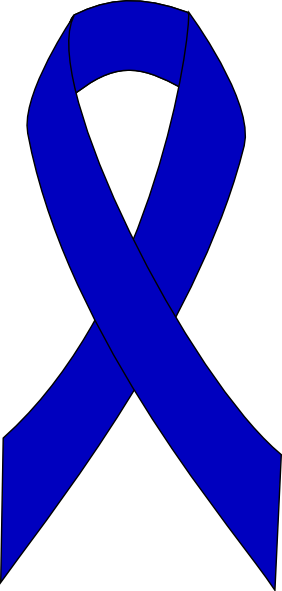

Lynch Syndrome is an inherited gene mutation. People with lynch syndrome have a significantly increased chance for developing colorectal cancer and many other related cancers. This gene mutation is passed on through generations of a family.

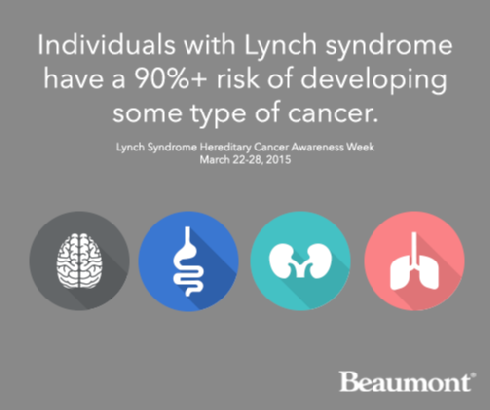
Testing for lynch syndrome is not for anyone in the
general public or individuals who have or have had colorectal cancer. There are
specific signs that may lead doctors to have their patients and their families
tested. Signs of lynch syndrome include a consistent family history of
colorectal cancer as well as other related cancers, and the development of
colorectal cancer at an age younger than 50.
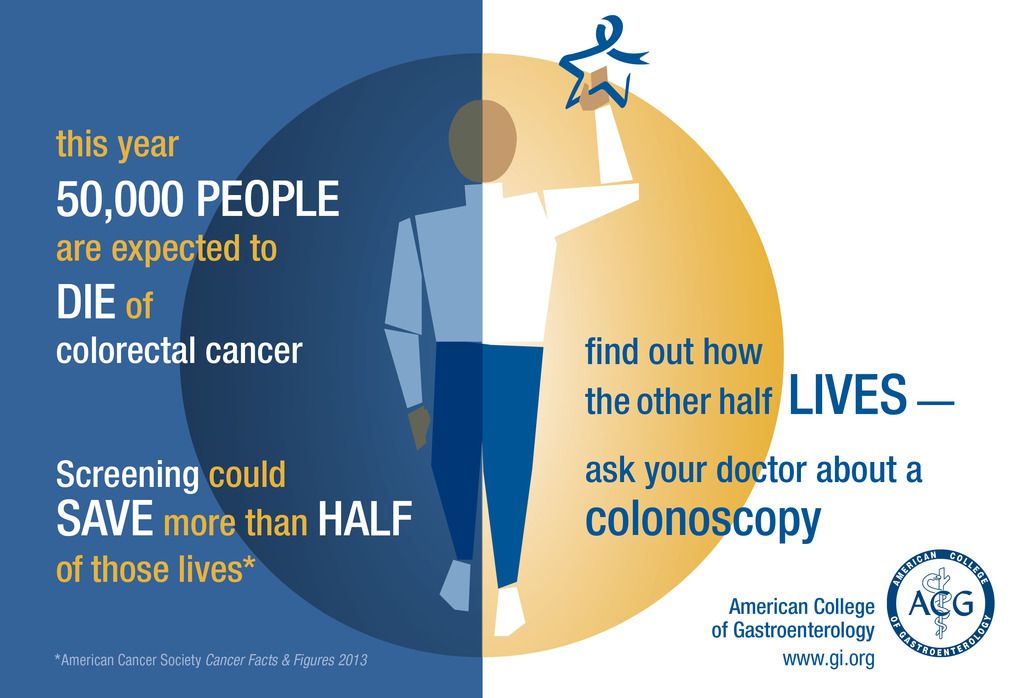
The most common cancer related to lynch syndrome is colorectal cancer. Colon cancer affects the digestive system. It interrupts its functions and processes both anatomically and physiologically. Symptoms of colon cancer include blood in stool, diarrhea, constipation, thin stools, persistent abdominal pain, unexpected weight loss, and the sensation that bowels are not being completely emptied. Lynch syndrome can affect other systems of the body if other related cancers develop. This syndrome also affects genetics within and individual and their families
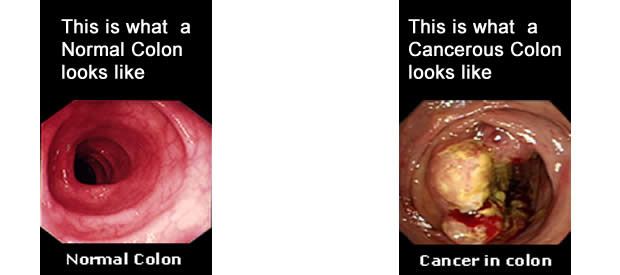
Reducing the risk of developing colon cancer is
very important for someone with lynch syndrome. Diet is a major factor in
keeping the bowels healthy. Someone with lynch syndrome should eat little to no
red meat, and should eat a high fiber diet. Exercise is also important in
keeping the body healthy. Some doctors may recommend lynch syndrome patients to
take a baby aspirin every day to reduce the risk of colon cancer. One of the
most important factors in reducing the risk of colon cancer is getting screened
regularly. Someone with colon cancer should have a colonoscopy every 1-2 years,
or as recommended by their doctor starting at the age of 20.
Treatments for colon cancer may include surgery, chemotherapy, radiation therapy, or targeted drug therapy. Each treatment plan depends on the severity of the cancer, the type of cancer, and the patient themselves.
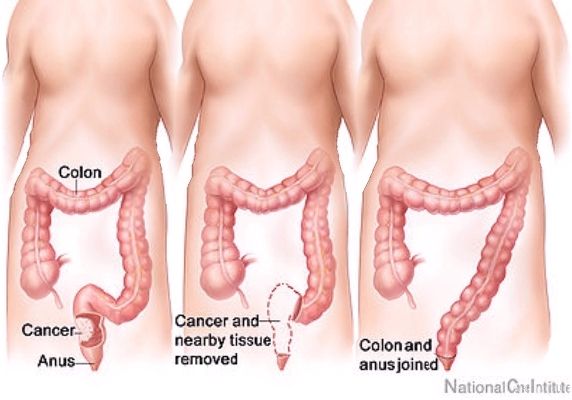
I am interested in learning more about lynch
syndrome because I have the gene mutation. Colorectal cancer and other related
cancers have traveled through my family tree over many generations. From my
great-grandmother to my grandfather, uncle, my mother, and many other
generations above mine have had colon cancer and have lynch syndrome. My mother
was diagnosed with stage two colon cancer at the age of 44. She had surgery to
remove the cancer and 6 months of chemotherapy after that. After looking at our
family history, our doctor encouraged my mother, my siblings, and I to be blood
tested for lynch syndrome. My mother, her brother, and her father all tested
positive for lynch syndrome. My test also came back positive for the gene
mutation. From there, I have taken serious precautions to protect and prevent
myself from developing colon cancer and other related cancers. I try to stay
away from red meat, I take fiber and aspirin daily, and I have had two
colonoscopies to ensure there are no polyps or cancer in my colon.
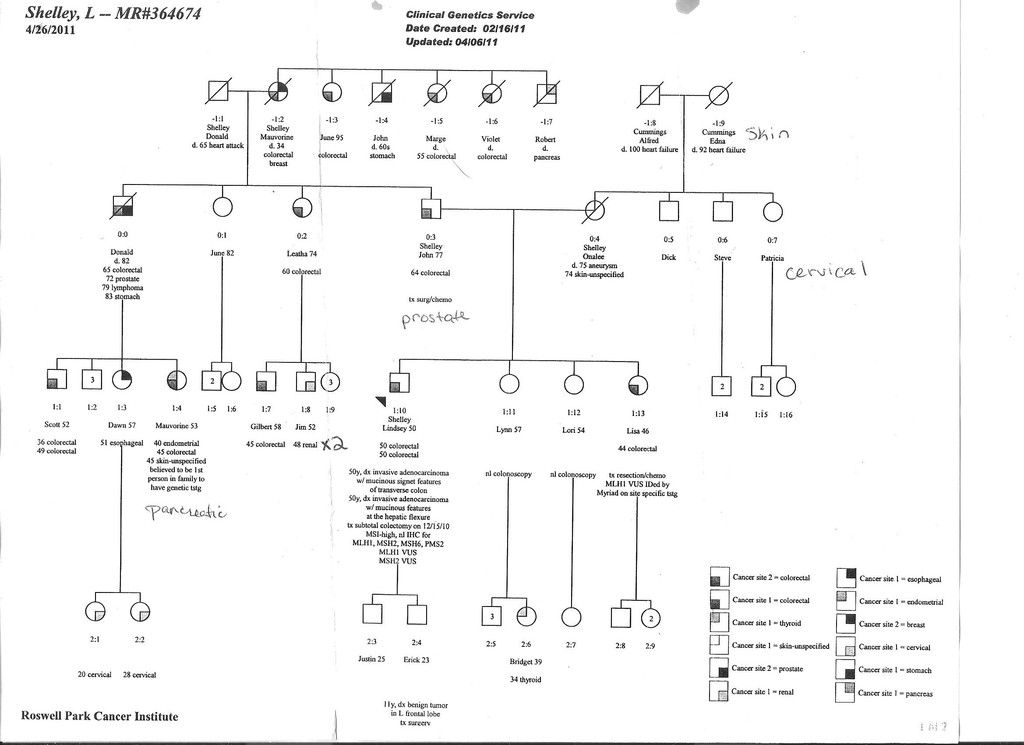
LINKS-
-http://www.cancersupportcommunity.org/General-Documents-Category/Education/Lynch-Syndrome.pdf
-http://www.mayoclinic.org/diseases-conditions/colon-cancer/basics/alternative-medicine/con-20031877
-http://www.cancer.net/cancer-types/lynch-syndrome
Shelby Curtin 2014